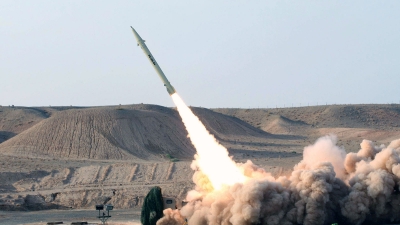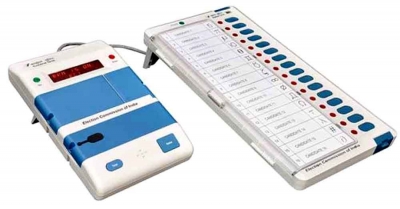What are ballistic missiles?

North Korea last month fired two short-range ballistic missiles into the sea in defiance of UN Security Council resolutions that ban such launches by the country. Some experts said North Korea's recent missile launches were aimed at laying pressure on the new Biden government in the U.S., which condemned the tests. The U.S. North Korea talks on curbing the latter's nuclear ambitions have been stalled for nearly two years due to disputes over the U.S. sanctions on the North. But what are ballistic missiles and why are their development condemned?
Capable of mass destruction
Ballistic missiles are short-, medium and long-range rocket-propelled weapon systems with the potential to carry and deliver weapons of mass destruction quickly and accurately. They follow a ballistic trajectory (a curved path) over most of their flight to deliver a payload (an explosive. weapon or nuclear device) intended to destroy a predetermined target. That means even after the missile burns up the fuel which propels it, it keeps moving and its direction remains unchanged. It follows a path determined by the speed of its launch and the influence of gravity on it which pulls it towards the Earth. So, it is gravity that eventually guides the missile to its target. Currently, over 30 countries are in possession of ballistic missiles.
Rules governing ballistic missiles
The proliferation of missiles has always been viewed as a threat to global peace and security. But, there is still no legally binding arrangement to deal with the issue of missiles. A number of multilateral regimes such as the Missile Technology Control Regime (MTCR) and the Hague Code of Conduct Against Ballistic Missile Proliferation (HCOC) exist to prevent missile proliferation. The voluntary MTCR was initiated in April 1987 by the G-7 countries (Canada, France, Germany, Italy, Japan, the UK and the U.S.) with the aim of limiting the spread of ballistic missiles that could be used in chemical, biological, and nuclear attacks by keeping vigil over transfer of missile equipment and technologies. The MTCR currently has 35 member countries, including India which became a member in 2016. Its activities are in line with the U.N.'s non-proliferation efforts. Countries are deterred from pursuing missile programmes either through sanctions or diplomatic dialogues. Though not legally binding, the MTCR expects its member countries to act responsibly and practise restraint with regard to export of items that could lead to missile proliferation.
The HCOC launched in 2002, urges all countries to show greater restraint in their own development of ballistic missiles and to reduce their existing missile arsenal. It has over 140 member countries who are expected to annually exchange information about their ballistic missile launch programmes and provide advance notice of any such launches.
When was it first used?
The first-ever usage of ballistic missiles can be traced to World War II, when the Nazi Germany used the V-2 long-range guided ballistic missiles to attack London. When the war ended, the U.S. with the help of the captured German scientists built its own intercontinental ballistic missiles capable of unleashing nuclear destruction. Not surprisingly, other countries too got their hands on the new technology.
Picture Credit : Google
